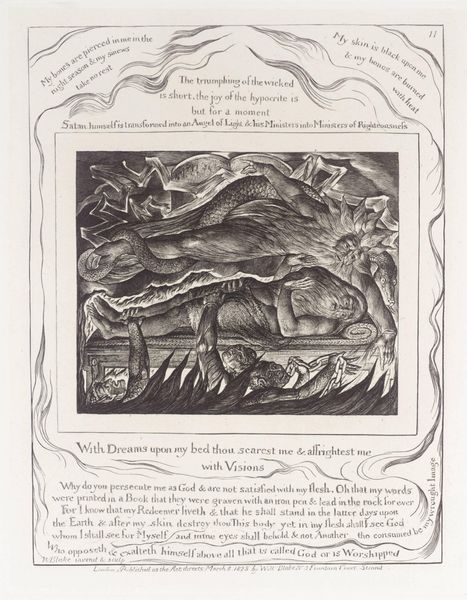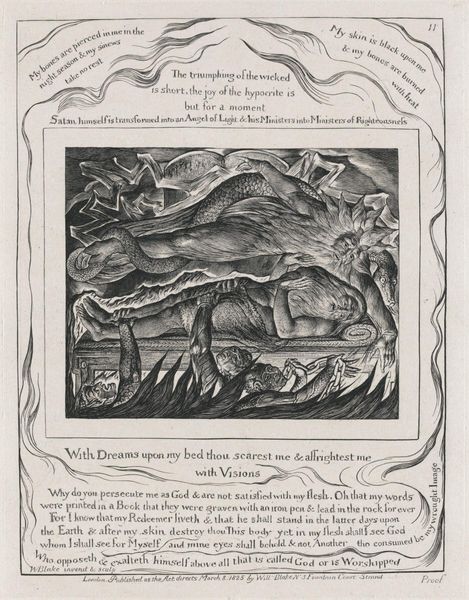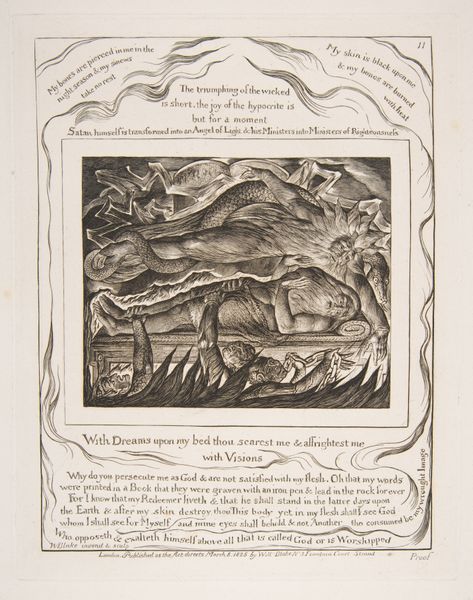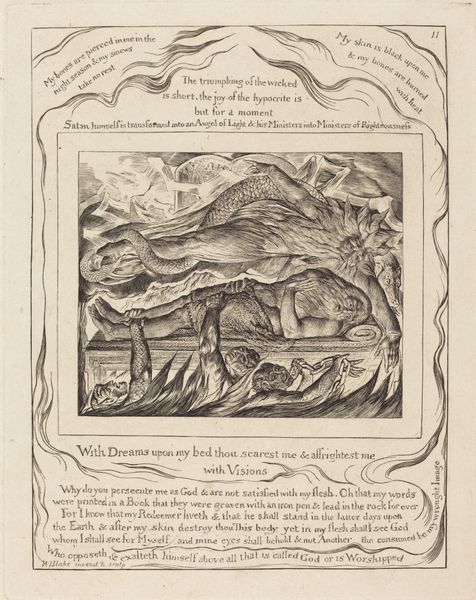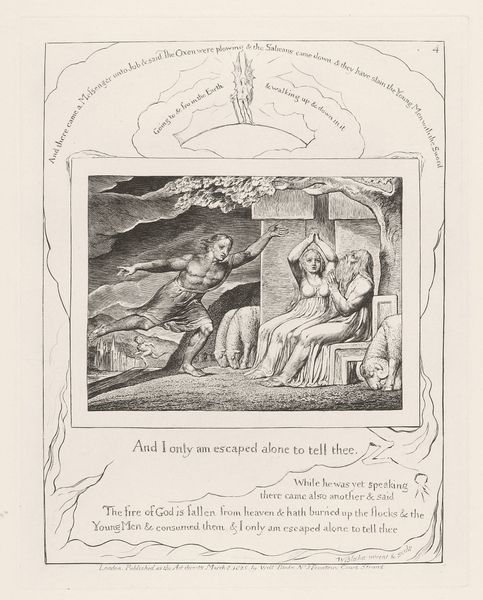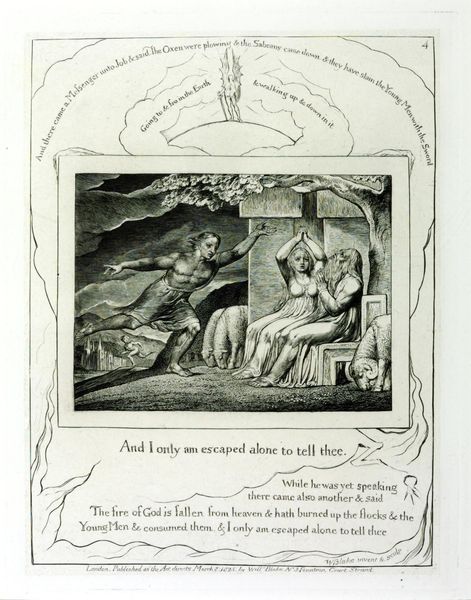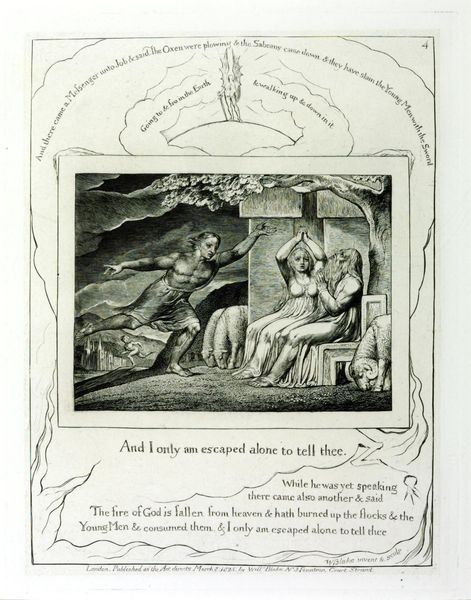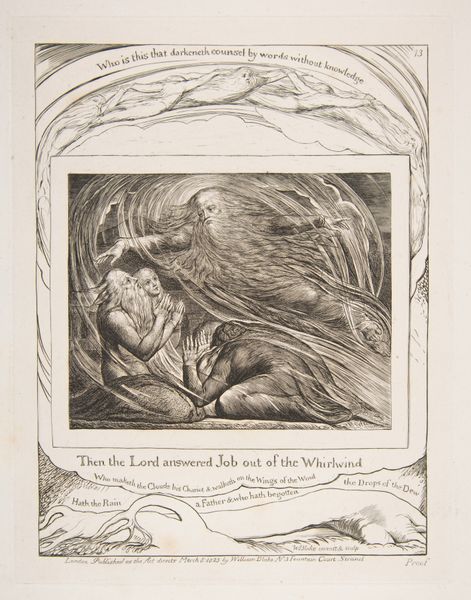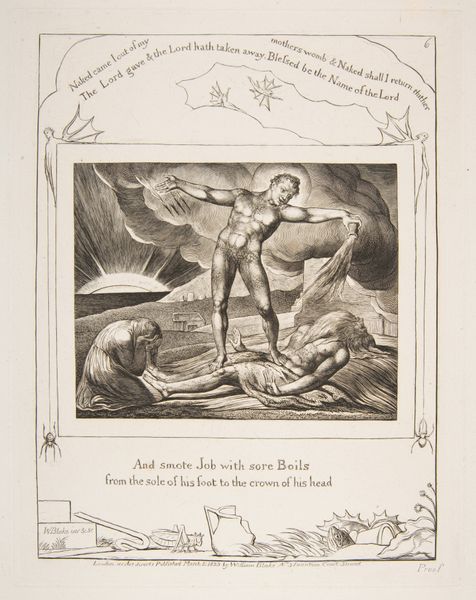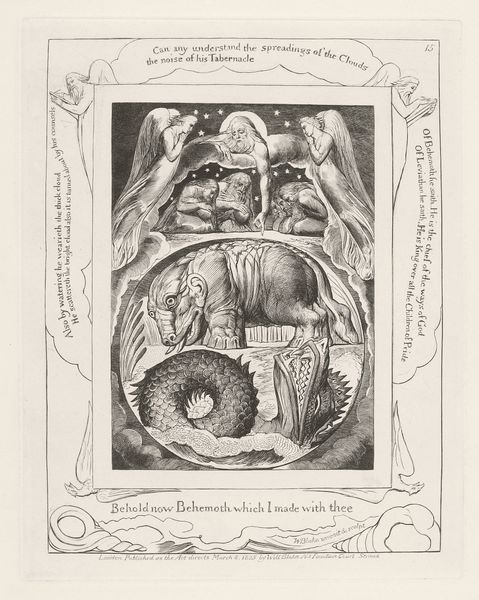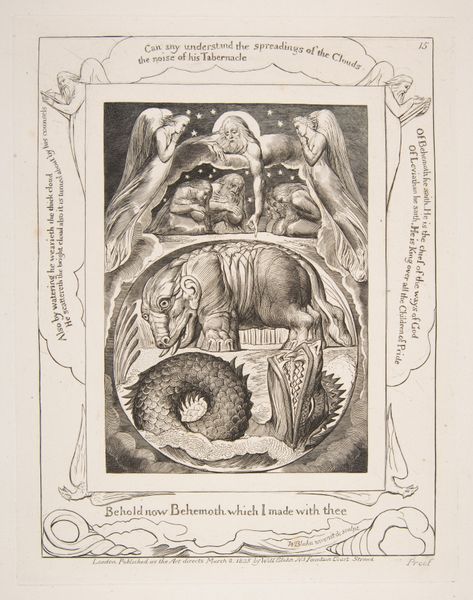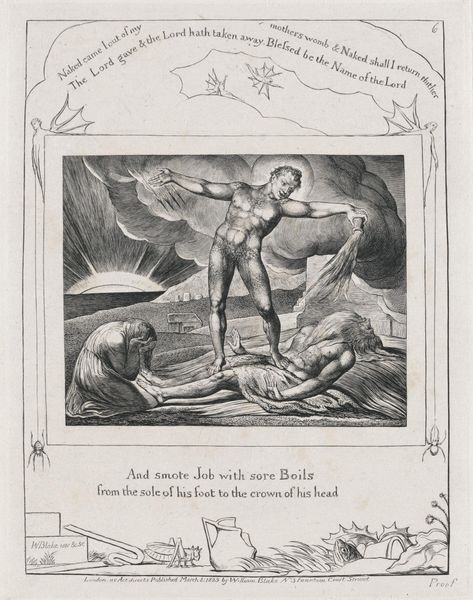
Dimensions: image: 197 x 152 mm
Copyright: CC-BY-NC-ND 4.0 DEED, Photo: Tate
Curator: This is William Blake's "Job's Evil Dreams," part of his Illustrations of the Book of Job. Editor: It’s incredibly unsettling. That writhing figure on the bed, surrounded by grotesque creatures... the stark lines amplify the sense of dread. Curator: Blake's engravings were produced using a complex relief etching technique, allowing him to combine text and image so powerfully. He printed and sold these himself. It's a fascinating example of how artists controlled production and distribution in the early 19th century. Editor: The raw physicality of the etching contributes to the work's emotional impact, that almost tactile sense of Job's suffering. You can almost feel the texture of the metal. Curator: Blake’s radical political views, including his rejection of institutional authority, influenced his interpretations of religious texts and the production of his art. Editor: Thinking about the social climate, this print acts as a powerful commentary on individual struggle against oppressive forces. Curator: Absolutely. Studying Blake's materials reveals much about his artistic vision. Editor: It's a stark reminder that art can both reflect and challenge the world it inhabits.
Comments
tate 10 months ago
⋮
http://www.tate.org.uk/art/artworks/blake-jobs-evil-dreams-a00022
Join the conversation
Join millions of artists and users on Artera today and experience the ultimate creative platform.
tate 10 months ago
⋮
Blake adapts as his main title words from verse 14 of chapter 7 of the Book of Job: 'Then thou scarest me with dreams, and terrifiest me through visions'. The substance of Job's dreams is not described in chapter 7. However, Blake derives some of his imagery and his quotations in the margins from elsewhere in the Bible. Thus 'my skin is black upon me and my bones are burned with heat' comes from the Book of Job, chapter 30. Satan, seen here hovering over Job, is described in the second book of Corinthians as 'transformed into an Angel of Light.' The flames of Hell which rise up from beneath Job's bed are echoed in the marginal design. Gallery label, August 1993
